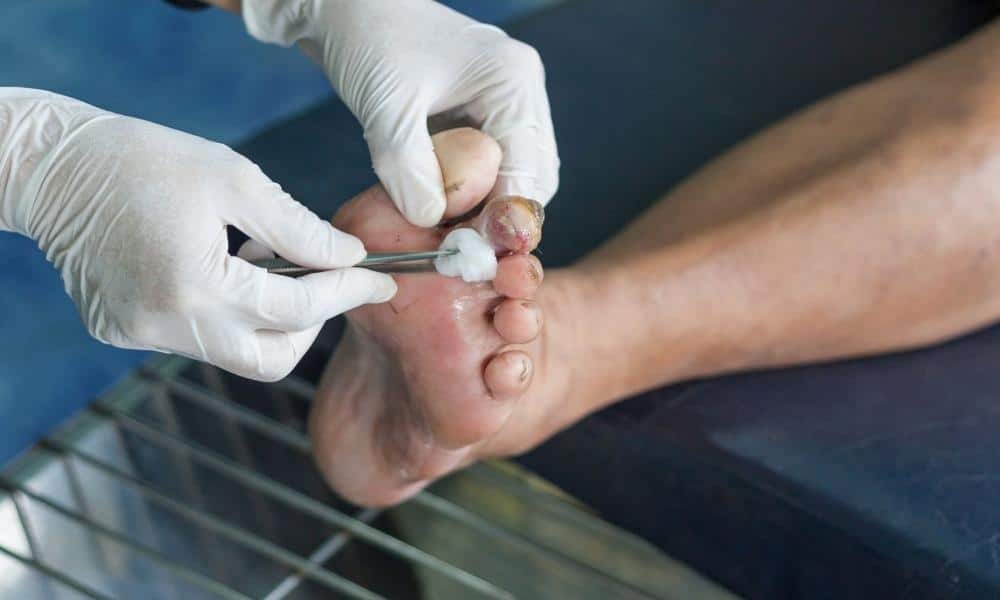
The prostate is a walnut-sized gland surrounding the urethra, a hollow tube that carries urine out of the body. In addition to controlling urine flow, it produces seminal fluid that supports the activities of spermatozoa. The prostate enlarges naturally throughout a man’s life, which can squeeze or partially block the urethra, causing urination problems.
At the Midwest Institute for Non-Surgical Therapy (MINT), we specialize in treating enlarged prostates using a minimally invasive procedure called prostate artery embolization (PAE).
You may be concerned if you have been diagnosed with an enlarged prostate. However, there are several encouraging facts that the issue may not be as bad as you fear.
An Enlarged Prostate is Normal
As a man ages, it is normal for the prostate to grow. This is known as benign prostate hyperplasia (BPH) and is usually not a serious threat to health. The prostate goes through two main growth spurts. The first occurs in puberty when it doubles in size. The second growth stage typically starts when a man is around 25 years of age and continues during most of his life.
By the age of 25, around a quarter of all men have BPH.
By the age of 60, around 50% of men have developed BPH.
By the age of 85, at least 90% of men have BPH.
An Enlarged Prostate Doesn’t Always Cause Symptoms
Many men who develop an enlarged prostate will never have symptoms that affect their quality of life. Others can adapt to the symptoms and cope reasonably well.
BPH Isn’t Cancer
If you are diagnosed with BPH, you may experience some of the following symptoms:
- Urinating eight or more times a day.
- An inability to delay urination.
- A weak or interrupted urine stream.
- Frequent urination during the night.
- Urine with an unusual color or smell.
- Pain during urination or after ejaculation.
- An accidental loss of urine – known as urinary incontinence.
- Difficulty starting to urinate.
- Dribbling once you’ve finished urination.
- Cannot empty all the urine from the bladder – known as urinary retention.
Men with prostate cancer also experience some of these symptoms, but BPH is not cancerous. It is a benign condition that does not increase your cancer risk. The risk of cancer is no greater for men with an enlarged prostate than it is for men without an enlarged prostate. However, since the early signs of prostate cancer and BPH are similar, it is a good idea to get checked by your doctor.
An enlarged prostate can also be caused by prostatitis, which can come on at any age. This is an inflammation of the prostate gland, and there are two principal types:
Chronic prostatitis – this is the most common form, and it’s where symptoms come and go over several months.
Acute prostatitis – the symptoms are severe and can occur suddenly.
An Enlarged Prostate Is Easily Treatable
The choice of treatments for an enlarged prostate mostly depends on the severity of symptoms. The options include:
Active monitoring of symptoms, also known as watchful waiting: For men with mild symptoms, it’s usually enough to make some minor changes in everyday life and pop in for a check-up about once a year. If you are concerned about a watch and wait approach consider asking your doctor the following questions:
- What will happen if my condition worsens?
- Will watching and waiting make it more difficult to treat me later on?
- Is there anything I can do while I wait to improve my condition?
Medication
The majority of men who seek medical advice for BPH opt for therapeutics. Depending on the medications, they will either relax prostate and bladder muscles, making it easier to urinate or decrease levels of the hormone that stimulates prostate growth.
Herbal Medication
Some men will take over-the-counter herbal products to relieve symptoms. Many of these haven’t been well studied.
Surgical Procedures
Several surgical approaches are available. One of the safest and most effective is prostate artery embolization, a minimally invasive procedure performed on an outpatient basis. This means you can go home the same day as your treatment, and the recovery period is short. Also, you won’t need a general anesthetic while PAE is performed because it is not painful.
During PAE, the surgeon will make a small incision in your upper thigh to access the prostate’s blood vessels with a catheter. Once in place, tiny particles are released to slow up the blood flow to the gland. As a result of a reduced blood supply, the prostate shrinks, allowing the urethra to open up. This brings symptom relief as urine flows more normally. The reduced size of the prostate doesn’t have any negative effect on sexual function.
PAE has several advantages over conventional prostate surgery. These include:
- As no surgery is required, there is a much lower risk of complications such as impotence, sexual dysfunction, retrograde ejaculation and urinary incontinence.
- Symptoms improve very quickly, so men are able to get back to their normal routines much sooner.
- A much shorter and more comfortable recovery period.
- Reduced bleeding.
How MINT Can Help You
If you have been diagnosed with BPH and its symptoms are affecting your quality of life, we can help. MINT specializes in performing prostate artery embolization on an outpatient basis and we´ll be happy to discuss the procedure with you and your options.
Contact us today for more information and to schedule a consultation at one of our 5 offices which now includes Chicago, IL.
Photo attribution: Image by Cookie_Studio on Freepik


